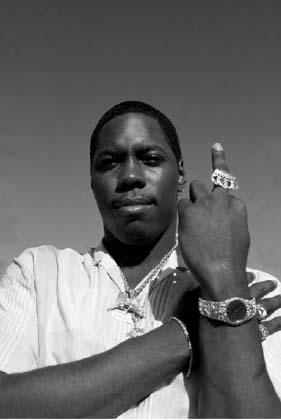The Encyclopedia of Dead Rock Stars (113 page)
Read The Encyclopedia of Dead Rock Stars Online
Authors: Jeremy Simmonds

JUNE
Monday 1
Gary Driscoll
(New York, 1946)
Elf (Electric Elves) Ritchie Blackmore’s Rainbow
(Various acts)

A veteran of transatlantic hard rock, Gary Driscoll first took to the drums in the post-psychedelic late sixties, with the Ronnie James Dio-fronted Electric Elves. Driscoll and Dio struck up something of a friendship, augmented when – now known as Elf – they were approached by Deep Purple’s Roger Glover, who offered to produce the group. Under his supervision, the band improved from a fairly pedestrian bluesrock combo to something nastier, going on to support Purple on their numerous world tours at the start of the seventies. At this time, Driscoll also became close to the headliner’s singer, Ritchie Blackmore, who left Deep Purple in 1975, taking four of Elf’s line-up – Driscoll, Dio, Mickey Lee Soule (keyboards) and Craig Gruber (bass) – to fashion his own band, Rainbow. The friendship did not last long: after just one debut album, Blackmore decided Driscoll was too set in his R & B ways, and replaced him with British percussion legend Cozy Powell. The heady days were never to be repeated for Driscoll, as none of his future bands (Dakota, Starcastle and Bible Black) matched the success of the earlier projects.
Since nobody has ever been brought to justice, the facts surrounding Gary Driscoll’s murder remain murky twenty-five years after the event. It is known that he was killed at his New York home by more than one person, and the likelihood is that drugs were involved, but persistent rumour suggests that there was an occult or ritualistic aspect to Driscoll’s death. The most disturbing allegation to emerge is that the drummer was flayed alive.
See also
Cozy Powell ( April 1998); Ronnie James Dio (
April 1998); Ronnie James Dio ( Golden Oldies #112). Early Elf guitarist Nick Pantas died in a road accident in 1970.
Golden Oldies #112). Early Elf guitarist Nick Pantas died in a road accident in 1970.
Monday 8
Yogi Horton
(Lawrence Horton - Teaneck, New Jersey, 1 October 1953)
(Various acts)

He was one of the most respected session drummers in rock and R & B music, yet Yogi Horton was unhappy about the supposed lack of recognition he was receiving from those employing him, and this ultimately cost him his life. Throughout his long career, however, Horton seldom waited long for a big name to select him for recording. During the seventies and eighties, he added playing with Aretha Franklin, John Lennon, The Rolling Stones, Diana Ross, The B-52’s, Deborah Harry and David Byrne to his CV, while touring for some years with Luther Vandross’s band.
It was the last booking that was to cause him problems. Feeling undervalued (and underpaid), Horton sat staring out from his hotel room after a performance at Madison Square Gardens. Telling his wife he needed to do something, he then jumped from the seventeenth-floor window to the pavement below.
See also
Luther Vandross ( July 2005)
July 2005)

Scott La Rock: First of the gang to die
AUGUST
Tuesday 25
Scott La Rock
(Scott Sterling - New York, 2 March 1962)

The first major death to occur in hip hop, Scott La Rock’s murder set a grim marker for the gun-related violence witnessed within the genre over the next twenty years. Given the nature of his death, it’s something of an irony that La Rock (then Sterling) had begun his career as an attorney, and met his musical partner KRS-One (Lawrence Krisna Parker) while a counsellor at the Bronx homeless refuge where the latter was a day visitor. As Scott La Rock, he operated as a DJ in the evenings, impressing KRS-One and another DJ, D-Nice, with whom he was soon to form Boogie Down Productions. Alongside contemporaries Public Enemy, BDP added a cutting edge to existing hip-hop styles, encouraging young blacks to employ ‘any means necessary’ to realize their rights. Thus,
Criminal Minded
(1986), the debut album (produced in conjunction with fellow Bronx rappers Ultramagnetic MCs), steadily accrued sales and is now considered a landmark release in prototype gangsta rap.
Summoned for his experience in mediating stressful situations, Scott La Rock drove his pickup over to a South Bronx housing project where D-Nice and an unnamed young rapper were embroiled in an argument over a woman. The 16-year-old attacker was, unbeknown to the DJ, armed with a handgun; La Rock was still seated in his pickup when the fatal shots were fired. Following the murder, KRS-One (aka ‘The Teacha’) instigated the Stop the Violence campaign and modified his own stance in deference to the memory of his dead colleague; the rapper still regularly pays homage to Scott La Rock in his work.
SEPTEMBER
Friday 22
Peter Tosh
(Winston Hubert Mcintosh - Grange Hill,
Westmoreland, Jamaica, 9 October 1944)
(Bob Marley &) The Wailers

Just months after the killing of Carlton Barrett ( April 1987),
April 1987),
another Wailer, Peter Tosh (‘The Stepping Razor’), was also senselessly cut down. A resilient youngster brought up by his aunt in Savanna-la-Mar (his minister father, whom Tosh did not meet until he was ten, sired many, many children, most of whom he neglected), Tosh made himself known as a musical talent in his remote but safe early home, playing guitar for a few shillings a time. This was fine until he was fifteen, when his aunt died and he was moved to the far more hostile environment of Trenchtown. There he met new friends Bob Marley and Neville ‘Bunny’ Livingston, also in their teens, the three fashioning an embryonic version of The Wailers. The guitarist maintained until his death that it was he who put a guitar in Marley’s hand.